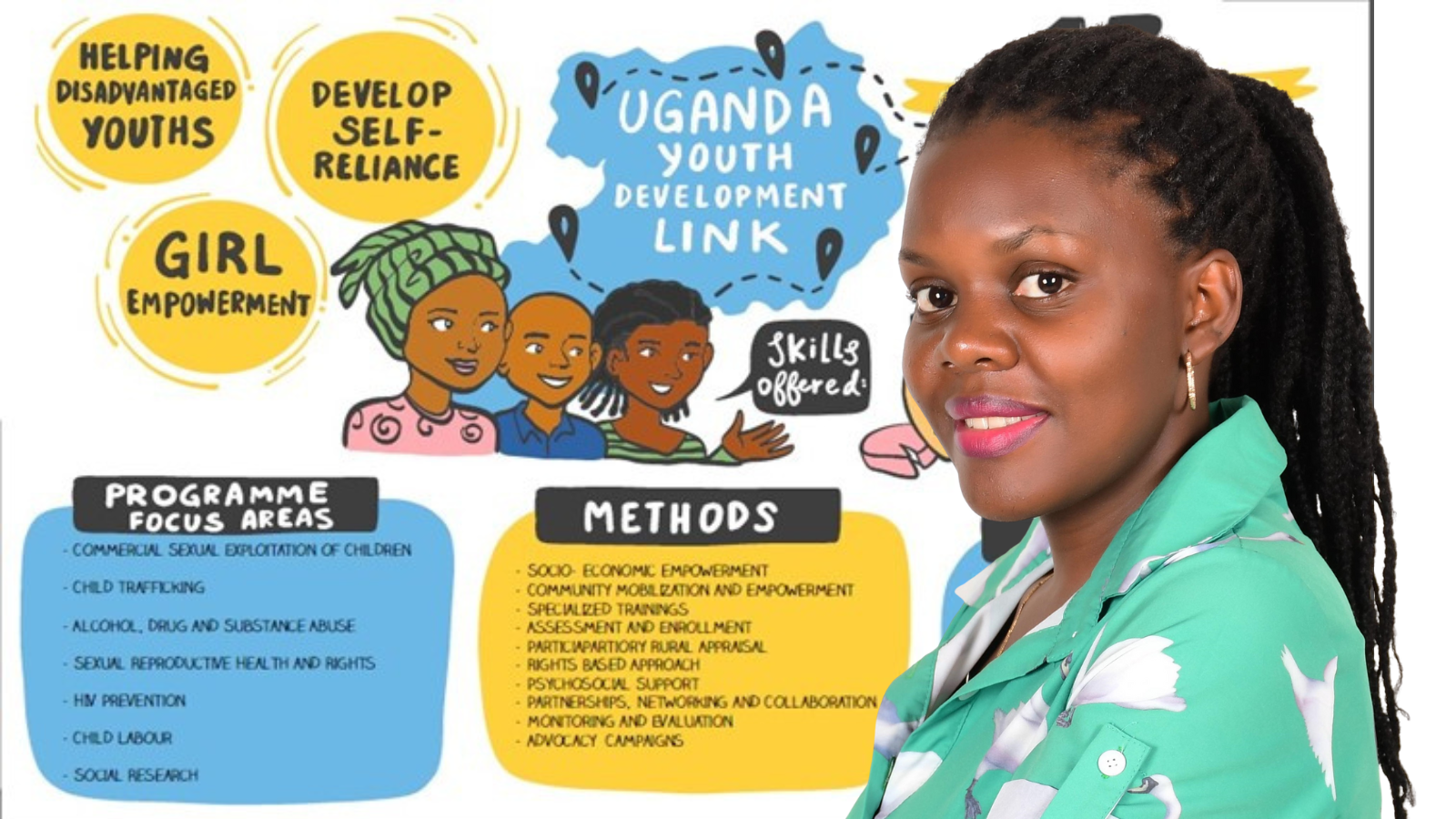
Earlier this year Barbara Nakijoba, a monitoring, evaluation and learning officer at NGO Uganda Youth Development Link (UYDEL)and a youth focal point for UNODC's SE4U project participated at the UNODC youth consultation, together with 60 other young leaders from all over the world, to discuss how youth and youth-led/focused organizations can better contribute to UNODC’s global work on drugs and crime. The young leaders emphasized that it is crucial to make the involvement of youth in UNODC more diverse and accessible, including by offering easy to read materials and paid opportunities.
In the past few years, the international community has increasingly recognised that young people have a vital role to play in the decisions that affect us all. In September this year the UN General Assembly decided to establish the UN Youth Office as a dedicated office for youth affairs in the Secretariat.
As a WhatsOn member, NGO UYDEL is among the active Ugandan civil society organizations. When it was founded in 1993, UYDL focused on drug abuse prevention in slum communities. However, over the years, the organization has adopted a more holistic approach to young people, taking into account the many other challenges they face daily, such as HIV/AIDS and criminal activity. UYDEL now runs several centres in Uganda targeted at youth aged 10-24 years who are vulnerable to exploitation and consequently to HIV/AIDS. The centres offer recruitment and assessment vocational skills training and rehabilitation services. Until today UYDL has created over five thousand success stories.
One of the ways UYDEL has achieved this, is by partnering with UNODC for the Line Up, Live Up initiative, a sports-based life skills training programme that aims to address risk factors associated with crime, violence and substance use. The project has reached over 6000 young men and women. “The initiative has promoted talent development not only for young men but also for young women. While previously communities would say that they ‘don't want girls to participate in sports as they will not get married’, the initiative has encouraged communities to adopt a different attitude towards girls engaging in sports”, says Barbara.

Only inclusive action can be successful
“The Stakeholder Engagement for UNTOC (SE4U) project has really supported us by giving us a framework for the work that we do both as an organization and with our different partners”, reflects Barbara. It has become increasingly obvious that no organization alone can address the issues of organized crime, but instead the many different sectors, the governments, and especially those who work at the grassroot level must collaborate. She emphasizes that the high-level support from the SE4U project helps UYDEL to convince other stakeholders on the national and international level to collaborate with them. The benefits of such collaboration were especially noticeable during the COVID 19 pandemic, when UYDEL was overwhelmed by the demand for services and decided to reach out to other organizations to work together and provide the best possible services for the youth. Barbara concludes that “the SE4U project has helped us to harness the power of working as a team, and it has also helped us to ensure that our young people have access to justice”.
Collaborating with the SE4U project is a crucial part of UYDEL’s fundamental goal, namely to “ensure that we work with different partners and focus on holistic action”. This also involves “creating awareness to ensure that every person, even those working at the grassroots level, knows about human trafficking and transnational organized crime, what trends exist, how they can protect themselves from becoming a victim and how they can become a part of this movement”. Barbara stresses that the SE4U project is a great opportunity for NGOs but she has also experienced the challenges that arise when trying to contextualize the SE4U concept and the possibilities it offers to a local context. These difficulties arise due to the interconnectedness of many issues, for example a lack of trained partners and the urban-rural political divide, that exist on the ground and especially at the grassroots level. Because of this,more work is still needed to make the initiatives of the UN truly accessible.
This emphasis on accessibility also informed much of Barbara’s contribution at the Youth Consultation where she strongly advocated for capacity building among youth and greater involvement of youths at the grassroot level, to broaden the involvement of all young people with NGOs, local and national governments and NGOs to ensure that they can take ownership. Indeed, Barbara remarks that “a person without ownership cannot take action”.
Visit the UNODC-Civil Society Unit’s website for training opportunities.